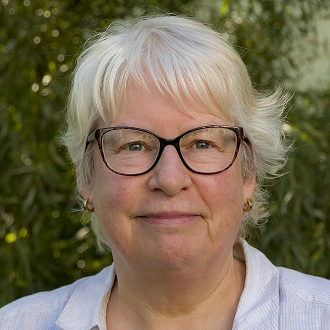Jane Parker studies the communication between plants and microbes. She has made important contributions to understanding how the plant innate immune system has evolved and functions as a crucial barrier to disease. Her current interest is in biochemical mechanisms connecting the detection of pathogens to defence pathways.
Parker studied Applied Biology at the University of Bradford and obtained a PhD in 1987 at The University of Wales, Swansea. Her curiosity for plant-microbe recognition developed as a postdoctoral scientist at The Max-Planck Institute for Plant Breeding Research in Cologne, followed by a period at The Sainsbury Laboratory in Norwich. In 2001, Parker moved back to the Cologne Max-Planck Institute to take up a senior research group leader position.
In 2009, Parker became Associate Professor at The Institute for Genetics, University of Cologne. She was elected to The German Academy of Sciences (Leopoldina) in 2013 and to EMBO in 2016. Parker contributes to various science committees and is currently on the Board of Directors for The International Society for Plant-Microbe Interactions (IS-MPMI). She is married with two children.
Professional position
- Senior Research Group Leader, Department of Plant-Microbe Interactions, Max Planck Institute For Plant Breeding Research
Subject groups
- Biochemistry and molecular cell biology
Biochemistry and molecular biology
- Microbiology, immunology and developmental biology
Genetics (excluding population genetics)
- Organismal biology, evolution and ecology
Evolution, Plant sciences / botany

